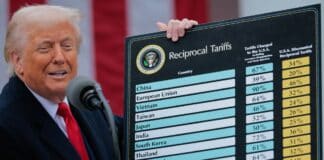The United States and China have signed an updated agreement to renew its Science and Technology Agreement (STA) for five years.
According to a statement from the State Department, the agreement “sustains intellectual property protections, establishes new guardrails for implementing agencies to protect the safety and security of their researchers, and advances U.S. interests through newly established and strengthened provisions on transparency and data reciprocity.”
The agreement “ensures that any federal science and technology cooperation with the [People’s Republic of China] under the STA benefits the United States and minimizes risks to U.S. national security. The amended Agreement covers only basic research; this Agreement does not facilitate the development of critical and emerging technologies.”
Chairman of the House Select Committee on the CCP, Rep. John Moolenaar (R-MI), and thirteen other members of Congress urged Secretary of State Antony Blinken not to renew the STA.
“[A] renewal of the STA in the final days of the administration is a clear attempt to tie the hands of the incoming administration and deny them the opportunity to either leave the agreement or negotiate a better deal for the American people,” the lawmakers wrote.
American Faith reported that an updated research policy to take effect on May 6, 2025, excludes the avian influenza and SARS-CoV-2 viruses.
Research to be governed includes anything involving the creation or alteration of a pathogen of pandemic potential (PPP).
“This Policy addresses oversight of research on biological agents and toxins that, when enhanced, have the potential to pose risks to public health, agriculture, food security, economic security, or national security,” reads the “United States Government Policy for Oversight of Dual Use Research of Concern and Pathogens with Enhanced Pandemic Potential” guidelines.
As of May 2024, the virus behind COVID-19, SARS-CoV-2, is not considered a PPP because of the “development of vaccines and other effective medical countermeasures, as well as the rise of population immunity,” implementation guidance for the policy reads. “If SARS-CoV-2, regardless of lineage, were genetically modified to enhance transmissibility, virulence, and disrupt effectiveness of pre-existing immunity in humans, it could still be anticipated to result in a PEPP.”





